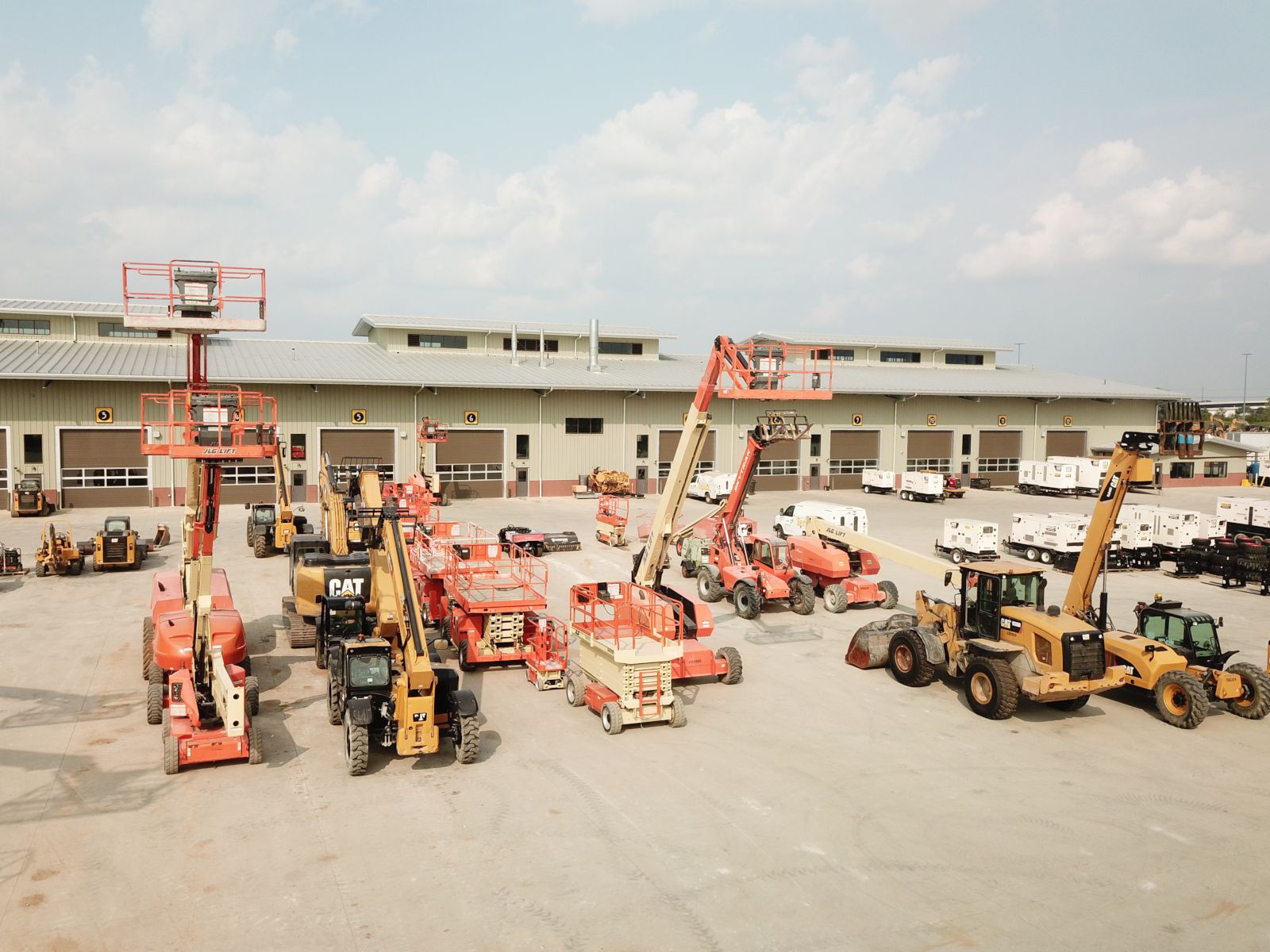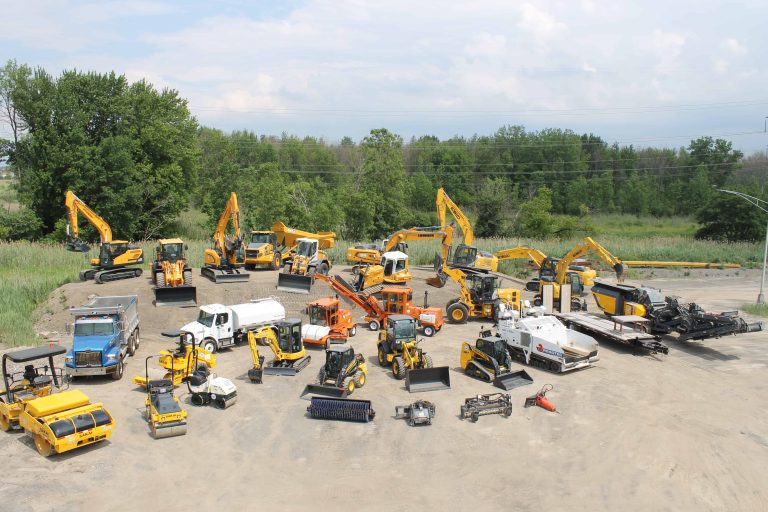Heavy Equipment Rental: Big Machinery for Any Construction Task
Heavy Equipment Rental: Big Machinery for Any Construction Task
Blog Article
Maximize Your Budget by Understanding the Costs Connected With Construction Devices Rentals
Understanding the full extent of costs connected with building tools services is vital for maximizing your budget plan. While the initial rental fee might seem uncomplicated, various additional costs-- such as transport, gas additional charges, and maintenance-- can quickly accumulate, impacting your financial planning. Being conscious of various costs and the intricacies of rental arrangements can assist prevent unexpected monetary burdens. What strategies can be used to effectively take care of these prices and ensure an extra efficient rental experience?
Review of Rental Expenses
When taking into consideration building tools rentals, understanding the associated prices is paramount for reliable budgeting and job preparation. Rental prices can differ substantially based on several aspects, including devices kind, period of service, and location. The initial rental charge usually reflects the tools's market need and its connected functional capacities, affecting the overall expenditure.
Along with the base rental rate, secondary costs might emerge, such as transportation fees, fuel surcharges, and maintenance fees. It is important to represent these additional expenses to precisely assess the overall price of renting tools. The rental period can influence pricing; longer services may certify for affordable rates, while temporary leasings could sustain higher everyday charges.

Break Down of Rental Rates
An extensive understanding of rental prices is crucial for specialists and project supervisors intending to optimize their budget plans. Rental prices for construction tools normally include several components, including base prices, time-based costs, and use fees.
Base prices are the core fees related to the leasing of the equipment, commonly determined by the kind and size of the machinery. These rates can differ significantly, influenced by elements such as devices demand, schedule, and local market trends. Time-based costs, which might be daily, weekly, or monthly, serve to fit various task timelines and rental periods.
Furthermore, rental rates might consist of usage charges, which are appropriate when tools is utilized beyond a defined threshold, making certain that the rental firm can represent wear and tear. Seasonal need changes can additionally impact rental rates, with peak building seasons commonly commanding higher rates.
Additionally, recognizing the rental firm's policies pertaining to maintenance and insurance policy can offer more insight right into the general price framework. By examining these components, professionals can make enlightened choices, making certain the selection of rental tools lines up with both project needs and budget plan restrictions.
Additional Fees to Think About
Understanding the ins and outs of added costs is essential for service providers to handle their general rental costs effectively. Beyond the typical rental rates, various additional fees can substantially affect the complete expense of tools service. These fees frequently include shipment and pick-up click resources fees, which can differ based on distance and logistics entailed in delivering the tools to and from the task website.
Furthermore, some rental firms might enforce gas additional charges if the devices is returned with much less gas than when rented out. It is additionally essential to know prospective cleansing charges, especially for specific equipment that needs complete upkeep after usage.

Thoroughly evaluating the rental contract and making clear these additional costs upfront can help specialists prevent unforeseen prices and make certain that budgets continue to be intact throughout the job lifecycle.
Repair And Maintenance Expenses
Regular repair and maintenance costs are frequently neglected variables that can substantially influence the general cost of construction equipment services. When leasing tools, it is critical to think about not just the rental charges however additionally the possible expenses connected with maintaining the machinery in optimum operating problem.
Numerous rental business include standard upkeep as component of the rental agreement; however, a lot more comprehensive repair work or unanticipated failures can bring about added expenses. It's crucial to assess the rental contract thoroughly to recognize what upkeep services are covered and what obligations fall on the tenant.
Additionally, devices that is not well-kept can result in inefficiencies at work site, potentially boosting and triggering hold-ups task costs. To alleviate these risks, it is suggested to perform routine inspections and maintain open communication with the rental copyright relating to any kind of problems that arise during use.
Insurance Policy and Liability Prices
Insurance policy and obligation costs are essential parts that can dramatically influence the overall cost of building tools services (scissor lift rental). These expenses make sure that both the rental firm and the client are shielded from potential economic losses arising from crashes, damages, or burglary during the rental period

In addition, customers must recognize any type of deductibles or exclusions in the insurance plan, as these can impact prospective out-of-pocket expenses. Understanding the terms and problems of any type heavy equipment trailer rentals near me of insurance policy coverage is important to stay clear of unexpected prices. Eventually, budgeting for insurance and responsibility costs can assist make certain a smoother rental experience and protect against monetary dangers connected with building and construction tasks.
Final Thought
In conclusion, a thorough understanding of the costs linked with construction equipment leasings is important for efficient budget management. Eventually, educated decision-making concerning tools rentals contributes to the total success of building and construction endeavors.
Rental costs can vary significantly based on numerous factors, including equipment type, duration of leasing, and location (dozer rental). The rental duration can affect prices; longer services might certify for affordable rates, while temporary leasings might incur greater everyday costs
By performing comprehensive study and engaging with respectable rental firms, service providers can effectively navigate the complexities of rental prices, ultimately maximizing their monetary resources.
Past the common rental rates, various additional costs can substantially influence the total expense of tools leasing. Rental firms commonly offer obligation insurance policy that covers injuries to 3rd parties or damages to building, while devices damage insurance policy can cover the price of repair services or substitute if the rented out devices is damaged.
Report this page